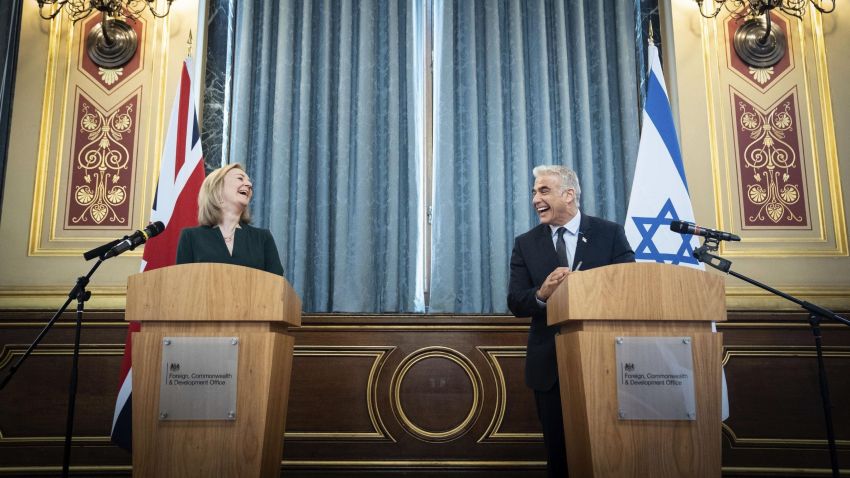Last month, U.K. Trade Secretary Anne-Marie Trevelyan launched negotiations with Israel to establish a new, innovation-focused free trade agreement. The U.K. has always attached high priority to its bilateral relationship with Israel, but ever since Brexit, it has invested considerable time and resources in reenergizing those ties, as part of its wider ambition to project influence on the global stage and strengthen its capacity to meet rising threats. However, this has resulted in a shift away from the country’s historical foreign policy positions, particularly toward Palestine—a trend that will only become more significant as the leading contenders in the U.K. prime minister race seek to distinguish themselves from their predecessors and the European Union.
The new trade agreement builds off a memorandum of understanding signed by the two countries in 2021, in which they pledged to develop a “U.K.-Israel Bilateral Roadmap” to improve cooperation and collaboration in key areas, such as innovation, defense, development and climate change. Downing Street is also particularly interested in projecting influence in the Gulf region. Toward that end, it has aimed to encourage a further normalization of relations between Israel and member states of the Gulf Cooperation Council, or GCC, by leveraging its position as a historical partner to all parties. This follows the signing of the Abraham Accords in August 2020, which formally established diplomatic relations between Israel and the United Arab Emirates and Bahrain, facilitated by the United States.
By pursuing broader normalization, the U.K. seeks not only to play a key role in shoring up a new regional security framework capable of countering Iran, but also to ensure that London is well-positioned to capitalize on any new economic opportunities that arise from normalization itself. Moreover, it is keen to take advantage of Washington’s decreasing involvement in the Middle East and shift in focus toward Asia, picking up any slack left by the U.S. so that all bases remain covered.

